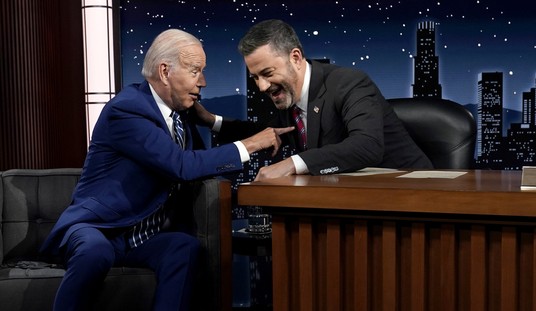Democrats in Wisconsin and their allies in the labor movement still plan to attempt a recall of Governor Scott Walker as punishment for limiting the collective bargaining privileges of public-employee unions, a key part of Walker’s effort to reduce costs in government. The failure to win back control of the state Senate this summer after spending millions on those recall efforts may have tempered the expectations of success for the Walker recall, but a better indicator might come from an entirely different reform Walker and the state GOP enacted once in control of the state legislature. Their new “shall issue” law on gun permits has resulted in an overwhelming response from Wisconsin citizens:
Wisconsin residents have overwhelmed the state Justice Department with so many concealed weapon permit applications agency officials say they probably won’t meet deadlines for issuing approvals this month despite pulling dozens of employees from other tasks to help.
A state law that allows Wisconsin residents to carry concealed weapons went into effect Nov. 1. Under the law, state residents 21 or older who submit $50 to the Justice Department, pass an agency background check and prove they have received some firearms training can obtain a permit to carry. The law requires the agency to process applications received before Nov. 30 within 45 days. Any applications received after that date must be processed within 21 days.
As of Dec. 28, DOJ had received 64,832 applications, issued 36,373 permits and denied 800, mostly because addresses applicants submitted didn’t match their addresses in state Department of Transportation records, DOJ spokeswoman Dana Brueck said.
DOJ Law Enforcement Services Division Administrator Brian O’Keefe said the agency has received anywhere from hundreds to thousands of applications in a single day. He said the agency likely will need one to two extra days beyond the 45- and 21-day windows to get permits processed for several weeks starting in early January.
Wisconsin isn’t the only state to have experienced a sudden rise in applications with this kind of regulatory change, where the state (or county sheriffs, usually) has to issue a carry permit unless they have a specific reason to deny one. Over the holidays, Instapundit linked to this Des Moines Register report of an “unbelievable” increase of 170% in applications:
The number of Iowans seeking permits to carry handguns and other weapons has increased 170 percent during the first 11 months of 2011 — a trend one Iowa sheriff calls “unbelievable.”
During the first year in which a new law gave sheriffs less discretion over which residents can be denied permits, 94,516 Iowans sought and received non-professional weapons permits from January through November, the Iowa Department of Public Safety reports.
Data from the state’s three most populous counties show an even greater surge in weapons permits in key urban areas. In Polk, Linn and Scott counties, the number of permits issued thus far in 2011 is 271 percent higher than in 2010.
Clearly, these “shall issue” reforms have proven very popular with voters in these states. Given that counties and cities have already saved tens of millions in costs, thanks to the ability to force the teachers’ union and their own health-insurance regime to compete honestly with other less costly alternatives, the popularity of this law will play into Walker’s hands in the recall fight. Returning to the status quo of the WISC and gun control will not appeal to Wisconsin voters, especially since Walker can claim — as he did last week — to have balanced the state budget without resorting to the tax hikes that Democrats demanded.
Support for the recall may well be loud and attention-grabbing, but these trends tell me that Walker’s support will be as concealed and effective as his permit-issue reform.








Join the conversation as a VIP Member